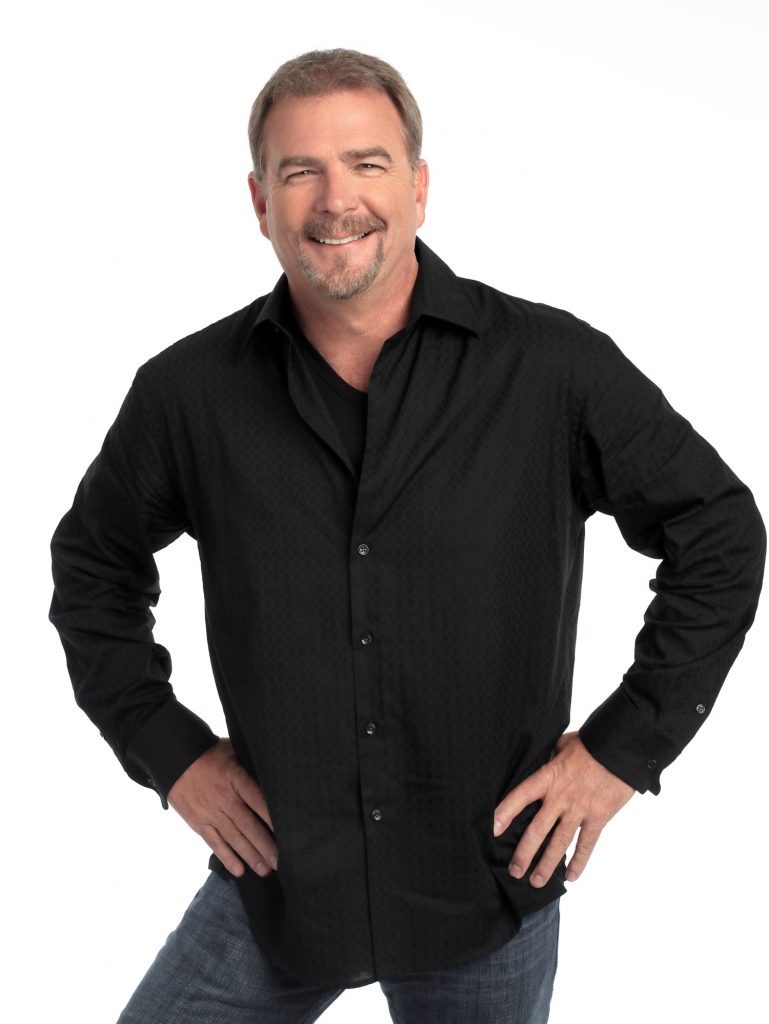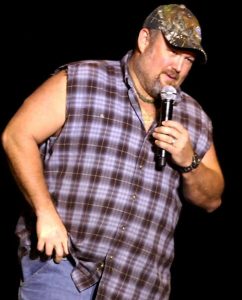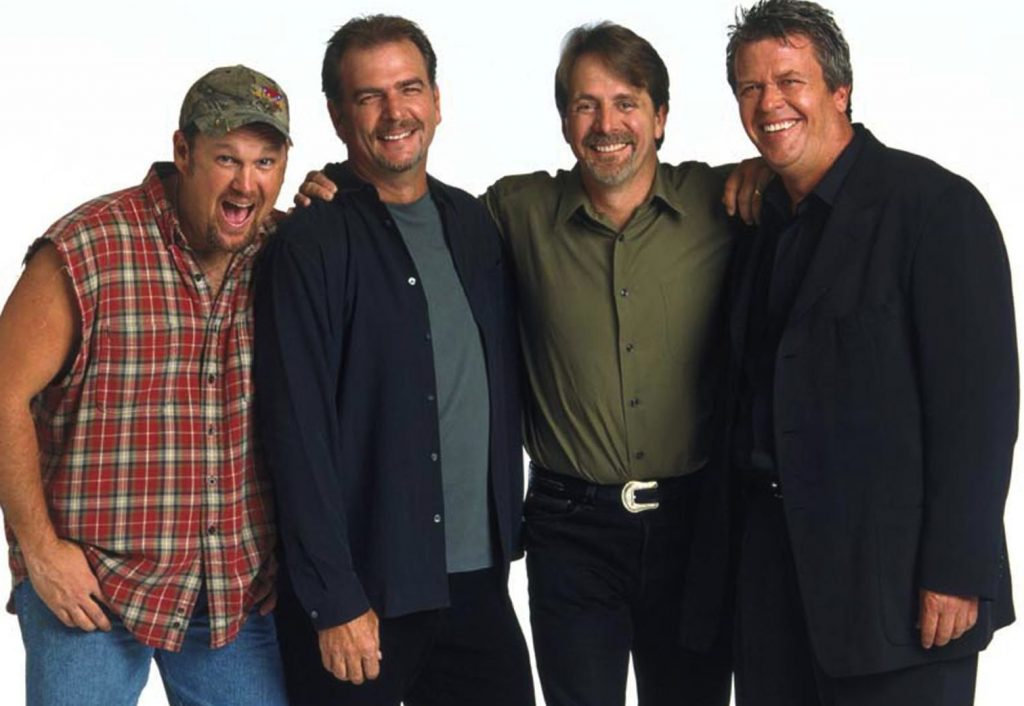 Larry the Cable Guy & Bill Engvall do two shows — at 5 and 8 p.m. May 4 — at the Fox Theatre.
Larry the Cable Guy & Bill Engvall do two shows — at 5 and 8 p.m. May 4 — at the Fox Theatre.
Only one thing ever made Bill Engvall doubt he was funny — “Star Search.” When the TV talent show came to Dallas looking for comedians in the mid-1980s, Engvall heeded the call.
All his friends said he was going to win. He believed them … but was eliminated on the first day of competition. As he sat in the back of the “loser’s van” with a pair of distraught dancers, he decided to give up comedy and go back to college.
He called his wife, Gail, from his hotel room and told her he was quitting. “No you’re not,” she said. “You love this too much.” She was right.
“She believed in me way more than I believed in me for the longest time,” he says. “This is a woman who said, ‘Let’s move’ when she was eight months pregnant with our first child. She said, you need to be in L.A. So we packed up.”
After helping him prepare for his first Hollywood audition, she waited for him to leave, then sat on the couch and cried. They were renting a house they couldn’t afford, the baby was coming and she was afraid he couldn’t “act his way out of a paper bag.” But she kept her doubts to herself and gently nudged him toward acting lessons.
That kind of support and faith is why most of Engvall’s act revolves around family, his wife and how happy their marriage is. Not that everyone understands how serious he is about that 30-year commitment.

“I had a woman come up to me and she said, ‘I think it is so wonderful how you talk about your wife, how you love her and that she’s part of your life,’ ” Engvall says. Then she asked him to have breakfast with her. “I was like, ‘What?’ I don’t think she was talking Denny’s, let me just say that.”
That good-natured sense of outrage at people’s selfish and stupid behavior is central to Engvall’s comedy. Inspiration can come from anywhere — a 50-year-old bragging about getting Invisalign braces, a mother pushing an “SUV stroller” down the sidewalk expecting people to jump out of her way, kids with biblical names behaving badly — funny things are all around us, he points out. That’s why he doesn’t dwell on how bad things are.
Engvall didn’t intend to become a comedian. He really wanted to be an actor. “But when you grew up in small Texas towns, you couldn’t tell your dad you wanted to be an actor,” he says. “You might as well have said you wanted to be a ballerina.” So he decided to be a singer. Only problem was, he couldn’t sing. In college, he purchased a Steve Martin record called Let’s Get Small. The first time he listened to it, all he heard was the comedy. The second time through he paid more attention to the applause.
Engvall says he’s always been funny — it was the quickest way he knew to make friends, and his family moved every couple of years. He remembers listening to The Button-Down Mind of Bob Newhart with his father. Other early comedy influences included Bill Cosby and George Carlin.
From Newhart and Cosby, Engvall learned “the cleaner you work, the longer you work” — advice he still gives young comics — as well as the art of storytelling. Carlin gave him the courage to share his most private, bizarre thoughts. And Martin was the icebreaker, Engvall says, in retrospect. Before him, “I didn’t even think you could make a living from comedy.”
Making a living was the last thing on his mind the night three beers gave him the courage to try stand-up at the club where he typically DJ’ed disco. The manager saw him hanging by the bar and asked if he was going to go up. Engvall said no. Next thing he knew, he was onstage.

“I don’t even remember what I did,” he says. “I just remember I fell in love with comedy right then.” He loved every aspect of the experience — the joy of causing laughter, the power of knowing people agreed with you, the intoxication of being embraced by a room full of strangers, the fun of playing with people’s expectations, the gratification of being told how hilarious you were afterward.
Among those he entertained that night was his future wife, who remembered him from college. When a friend told her Bill Engvall was at the bar, she went over to say hi. He knew she never really liked him and didn’t think he was her type, but he’d always had a thing for her. They exchanged numbers before he decided to go onstage. He casually mentioned he’d call her in a couple of weeks. He called the next day.
He may not remember what inspired that first six-minute comedy set. But it’s hard to believe the desire to impress her didn’t provide at least as much motivation as the beer.
::
Kristi Casey Sanders often writes about business, art and technology. Before joining Encore Atlanta’s editorial department, she did improv and acted professionally in Europe, North America and Australasia. She ended up keeping her day job.



